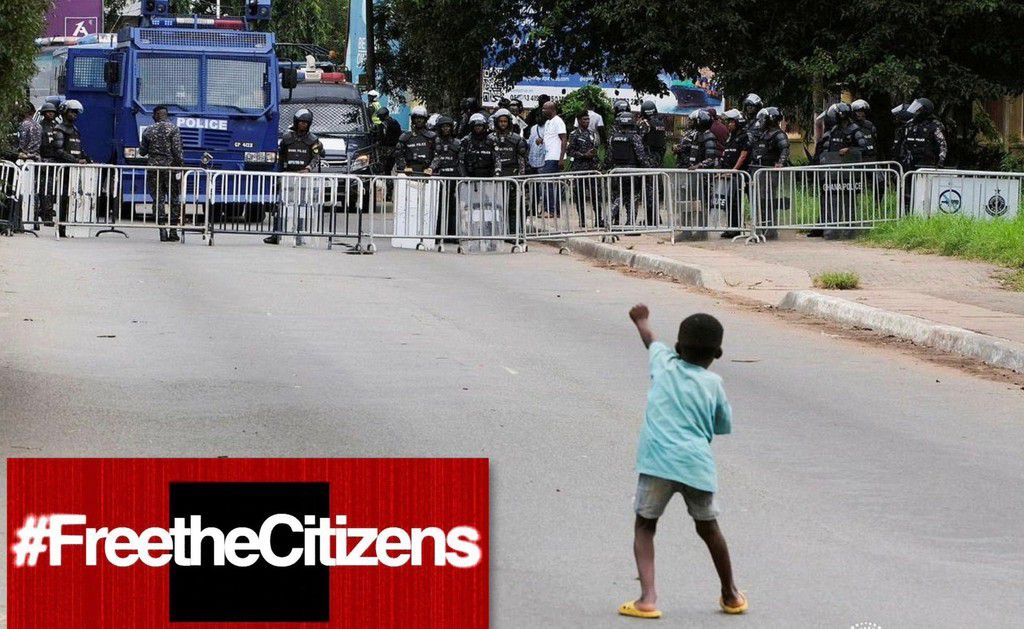#FreeTheCitizens: A call for freedom for protesters opposing Galamsey
)
This incident has sparked a national debate over the government's handling of both the economic and environmental crises, as well as citizens' rights to voice their frustrations.
The court charged them with unlawful assembly, assaulting a police officer, and conspiracy to commit a crime. The protesters, who pleaded not guilty, were part of a larger group of over 40 demonstrators arrested during the three-day "Stop the Galamsey and Re-Occupy Julorbi House" protest.
What Happened at 37 Military Intersections?
The #ReOccupyJulorbiHouse protest, organised by Democracy Hub, aimed to pressure the government into addressing the severe consequences of galamsey, including the contamination of water bodies, health crises, and economic decline. Demonstrators urged the government to take immediate action against galamsey, which has destroyed ecosystems and endangered the health of the population.
However, what began as a peaceful three-day demonstration has taken a disturbing turn. On 21 September 2024, protesters were met with a heavy police presence. Tensions rose when protesters attempted to break through police barricades at the 37 roundabout, leading to clashes. According to police reports, Democracy Hub leaders, including Mawuse Oliver Barker-Vormawor, were involved in breaching the barriers, further escalating the situation.

The Arrest and Court Proceedings
Of the 40 protesters arrested, 10 were the first to appear before the Accra Circuit Court, where they pleaded not guilty to charges including unlawful assembly and damage to property. Their cases have been adjourned until 8 October 2024, with more protesters set to face similar charges in the coming days.
The arrests sparked widespread outrage, with accusations of human rights violations. Protesters claimed that minors, elderly citizens, and pregnant women were among those unlawfully detained. Reports also surfaced that detainees were denied access to basic necessities such as food, water, and medical attention.
Democracy Hub Condemns Government and Police Actions
In a public statement, Democracy Hub denounced the actions of the Ghana Police Service, accusing them of infringing on citizens' constitutional right to protest peacefully. The organisation described the arrests as "state-sanctioned abductions" and called on advocacy groups across Africa and beyond to condemn what they see as a violation of human rights.
The statement highlighted the excessive force used by police, including the detention of minors, elderly women, and pregnant individuals, and criticised the authorities for refusing to grant bail to 18 protesters. Democracy Hub also raised concerns over the deteriorating health of some detainees, including a diabetic protester who was denied essential medical care.
The Police’s Response
The Ghana Police Service insisted that while they did not oppose the protest itself, the chosen location—Revolution Square near Jubilee House—posed a risk to public safety. Despite attempts to negotiate an alternative venue, Democracy Hub refused to relocate the demonstration. Consequently, the police sought and obtained a court injunction preventing the protest at the specified site.
The police reiterated their commitment to maintaining public order and safety, but Democracy Hub accused them of deliberately obstructing the protest under the guise of enforcing public safety laws.
Social Media Uproar and the #FreeTheCitizens Campaign
The arrests ignited a viral social media campaign under the hashtag #FreeTheCitizens, with activists, media personalities, and international figures weighing in on the matter. Kenyan journalist Larry Madowo tweeted, "I’ll be watching Ghana’s president speak in New York as police in Accra continue to detain peaceful protesters against illegal mining."
Another activist, Aba Appiatewaa, urged the United Nations to intervene, stating, “Ghanaians lack environmental rights: the right to potable drinking water, clean air, and uncontaminated soil for crop growth.”
The growing outcry has led many to question the police’s handling of the situation, particularly their failure to adhere to the constitutional requirement that detainees be brought before a court within 48 hours of arrest.
Looking Ahead: A Nation Divided
The ongoing events have triggered a debate about balancing public order and upholding constitutional rights in Ghana. While the police maintain they acted within the law to safeguard public safety, protesters and rights groups argue that their actions represent an overreach of power, with significant consequences for free speech and assembly in the country.
The spotlight is on the detained protesters and the broader movement they represent—one that calls not only for an end to illegal mining but for greater accountability and justice in Ghana’s political system.
The question remains: will the #FreeTheCitizens movement lead to lasting change, or will it be another chapter in Ghana's ongoing struggle for a better future?
)
)
)
)
)
)
)
)
)
)
)
)
)
)
)